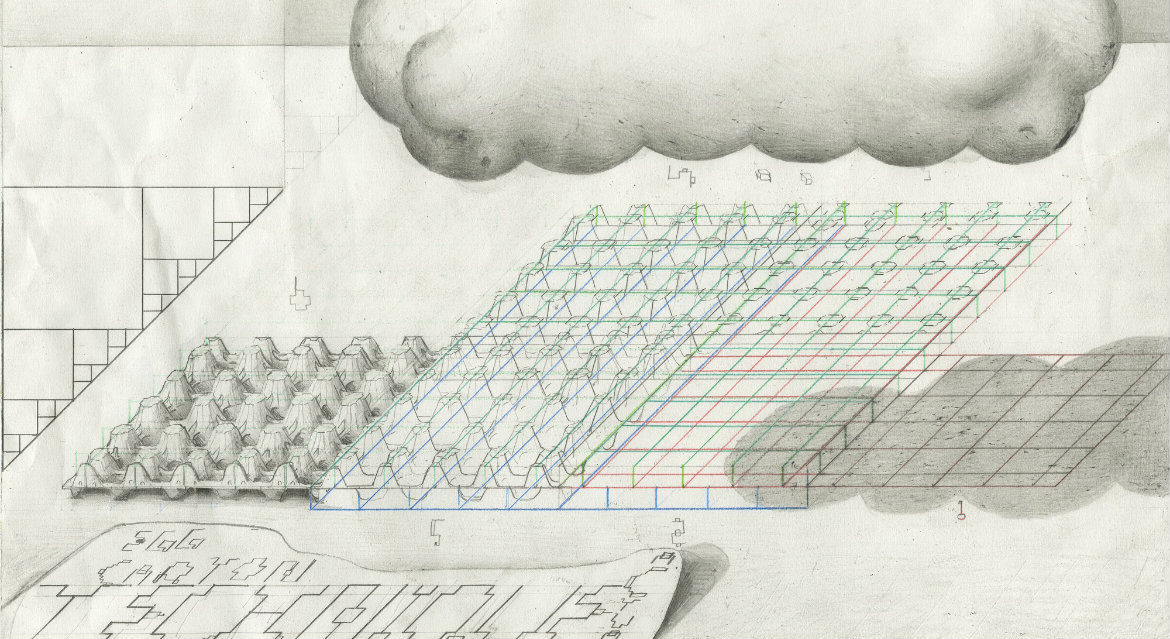Turner nominee and ‘father of town planning’ feature in exhibition
Published On Fri 17 Aug 2018 by Grant Hill

The relationships between urbanism and sustainability, collective consciousness and contemporary art will be explored in a new University of Dundee exhibition that coincides with the opening of V&A Dundee next month.
‘Politics of Small Places’ opens at Cooper Gallery, Duncan of Jordanstone College of Art & Design, on Thursday 13 September and combines work from contemporary artist and Turner Prize nominee Paul Noble and the late, pioneering Scottish urban planner Sir Patrick Geddes.
Taking place at a critical moment in Dundee’s cultural and architectural history, the exhibition brings together Noble’s depictions of urban blight with Geddes’ principle to ‘think global act local’ that calls for global consciousness and civic participation.
Curator Sophia Hao said, “Politics of Small Places asks urgent questions about sustainability, social struggle, and collective effort. Casting a stark light on the existential consequences of global urbanisation in the 21st century and drawing attention to the languages and metabolic processes that determine the modern city, Geddes and Noble offer contrasting imaginaries of urbanised space.
“For Geddes, with his famous valley section diagrams, which was based on the landscape and livelihoods of Dundee, city life is irrevocably tied to the landscape it sits within. In Noble’s drawings this symbiotic relationship between nature and the urban is revoked. Blending craft with carnivalesque, Noble’s urban depictions juxtapose social conscience with an acute humour to draw a world that is both austere and decadent.”
The exhibition comprises Noble’s Nest (2004) and Eggface (2014) accompanied by a suite of drawings from which Nest is derived. Alongside Noble’s works will be nine original diagrams selected from the Geddes Archive Collections at the University of Strathclyde.
Part of Geddes’ ‘thinking machines’, an immense body of diagrams and notes drawn in red and blue crayons during his lectures, these works explicate how different environments figure in the formation of social groups and their collective consciousness. Today Geddes’ work provides the means to look again at the urban spaces in which we subsist, consume and struggle.
Sir Patrick Geddes was an immensely influential planner and sociologist, credited with introducing the concept of ‘region’ to architecture, coining the term conurbation and helping to industrialise India, among other achievements that won him admiration from the likes of Darwin and Einstein. He held the Chair of Botany at University College Dundee, precursor to the modern university, from 1889 to 1919.
Paul Noblehas received widespread international recognition for his dizzyingly elaborate encrypted schemes, drawing from inspirations as diverse as ancient Chinese scrolls and Japanese sculptures, Fabergé eggs and brick walls, eighteenth-century pornography and animal rights. He was nominated for the Turner Prize in 2012.
As part of Cooper Summer Residency 2018, Noble will engage in a four-week written correspondence with Dr Lorens Holm, Director of the Geddes Institute for Urban Research at the University. This will culminate in a public in-conversation event at the exhibition preview on Thursday 13 September. Featuring Noble, Dr Holm and Dr Louise Anne Reid, researcher in Sustainable Development and Geography at the University of St Andrews, the event will explore current debates on urbanisation alongside ideas of social and environmental justice.
For more information, please see https://www.dundee.ac.uk/cooper-gallery/exhibitions/politicsofsmallplacespaulnobleandpatrickgeddes/.
For media enquiries contact:
Grant Hill
Press Officer
University of Dundee
Nethergate, Dundee, DD1 4HN
Tel: +44 (0)1382 384768
Mobile: 07854 953277
Email: g.hill@dundee.ac.uk